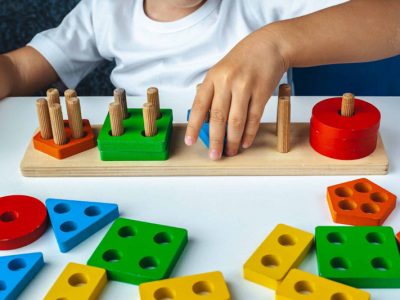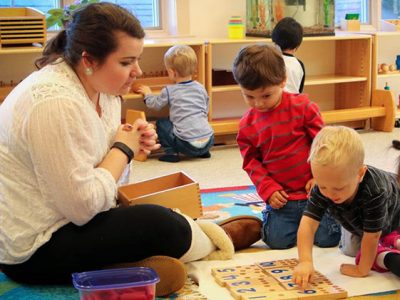
While many parents tell their children, they’re going to school to learn, not to spend time with their friends, Montessori educators would disagree with you. They understand children need lots of social interaction. They define socialization as the process through which individuals become aware of what behavior other people expect of them. There are many experiences that go into this process over the course of time as the whole community’s needs are taken into consideration.
In other words, a classroom of similarly aged kids may not be the best place for children to learn society’s norms, values and culture.

Defining “Socialization”
Socialization doesn’t mean spending your days competing with other people your age. Instead, it happens naturally when children spend time interacting with people of various ages. Teachers are needed to set standards about what’s right and wrong, but then they must step back and let children grow into their own selves and become confident individuals as they do so. They can also help students avoid peer pressure that creates impossible standards for them to meet during their formative years. This helps children figure out who they are and accept themselves for it.
Understanding What Socialization Really Looks Like
In a traditional school, many teachers believe there are plenty of opportunities for socialization within the classroom.
However, in reality teachers don’t let students interact very much. As such, students aren’t being properly prepared to acquire a personal identity, determine their own interests, or develop their own “distinguished” personal traits.
On the other hand, one of Montessori education’s biggest strengths is socialization. Many people misconstrue this as a weakness, though because they believe that the individualization of each child’s work based on their individual ability causes them to be isolated. This is far from the reality, though.
Just look around a Montessori classroom and you’ll see children interacting. Younger children observe older children, which then inspire them to do more advanced work. There are also times each day when the classroom comes together daily for academic lessons like singing, reading stories, and learning about things like grace and courtesy.



